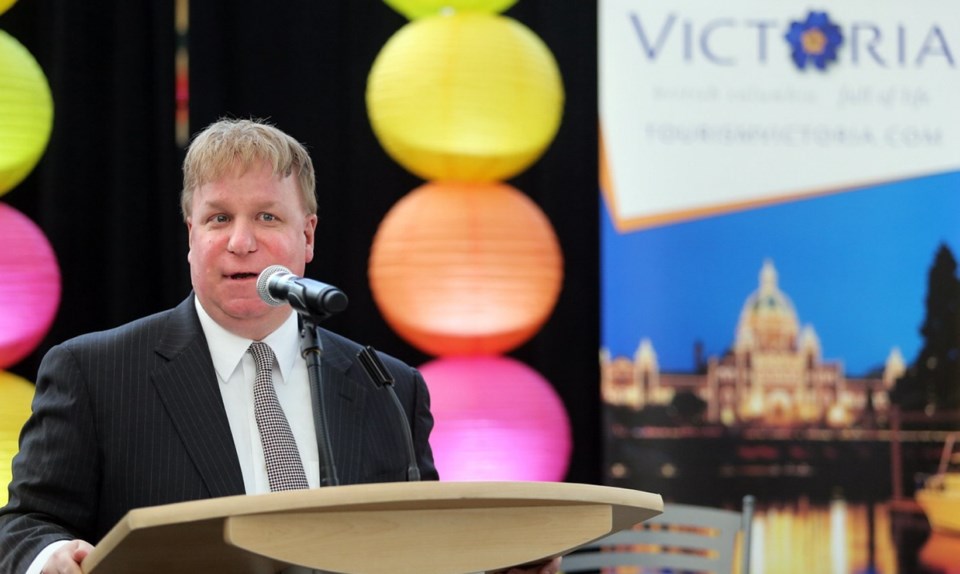Tourism industry officials and government leaders in Victoria appear to be dismissing as unsuitable for this region a tax agreement signed this week between Airbnb and the Quebec government.
The deal, which will see Airbnb collect a 3.5 per cent lodging tax on bookings for stays of under 31 days in that province, might be a first in Canada, but it doesn’t have many fans in B.C.’s capital.
“It’s a drop in the bucket. It’s a long way from a level playing field,” said Earl Wilde, general manager of the Victoria Regent Waterfront Hotel and director with the B.C. Hotel Association.
Wilde noted Victoria hotels collect as much as 16 per cent in taxes, not to mention paying for business licences and being assessed as commercial property and paying commercial property taxes.
Paul Nursey, chief executive of Tourism Victoria, said the industry would prefer a tax across the entire short-term rental market rather than a deal cut between one service such as Airbnb and the province or the city.
“We believe the one-offs don’t end well because the data and auditing provisions are weak. As an industry, we prefer a tax across all [providers],” he said.
Victoria hotels collect five per cent GST, eight per cent PST and either two or three per cent as a destination-marketing tax.
“The reality is there is 16 per cent tax collected on a hotel room and we would hope our peers in the short-term rental market would like to help pay for health care and education through mechanisms like this,” Nursey said.
Nursey said vacation rental is not going away and it does need to be dealt with, but it requires work from all levels of government as it touches on a number of issues from uneven business playing fields, through to eating up what otherwise might be affordable housing. “No one is opposed to these things existing, it’s just a question of what is a fair taxation level,” he said.
Victoria city Coun. Chris Coleman said the city, which is working on regulations for the short-term rental market, will have a look at the deal with Quebec, but he expects it will require a broader scope. “There’s a group out there that want them banned, which I don’t think we can do,” he said. “I suspect the better focus is the Tourism-Victoria perspective which is if you’re going to play in this game you need to be re-assessed as commercial and taxed appropriately.”
Provincial Finance Minister Carole James, whose Victoria-Beacon Hill constituency is home to most of Victoria’s major hotels and the some of the city’s most pressing housing challenges, said the government is still digesting the Quebec deal.
“We know that a number of local governments are looking at this issue in relation to vacancy and affordable housing challenges. Minister [of municipal affairs and housing] Selina Robinson and I will be working closely with local governments to develop an integrated strategy to fix the housing and affordability problems impacting people,” James said in a statement.
Airbnb believes the deal with Quebec could set an example for how it does business in the country. “As the first-of-its-kind tax agreement, this is a landmark and defining moment for Airbnb in Canada,” said Alex Dagg, Airbnb’s public policy manager in Canada. “The agreement in Quebec is an example of how Airbnb and government officials can work together as partners.”
In Greater Victoria, Airbnb boasts about 1,500 hosts, while in Vancouver it has 5,100. In Quebec, Airbnb has 22,300 active hosts. On average, they rent out a listing about 38 times year and collect $2,600. The amount of money raised through the new tax deal in Quebec will be returned to the province’s 22 tourism offices.



